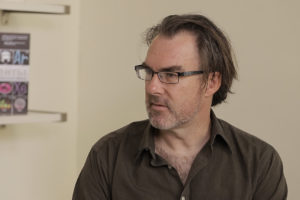Liberal Arts Curriculum
Daniel Kontowski on the freedom of students, prescribed curriculum and a ‘cafeteria’ model of education
How to track all the methods students use to prepare for tests? Which are the most useful of them in terms of education? How does the collected data help to improve the educational system? Professor of Physics at Massachusetts Institute of Technology David Pritchard explains how modern technology can alter the process of education.
I have taught a lot of people who have done very well in physics, in fact, four Nobel Prize winners. And one of the characteristics I think that I have is that I challenge them a little bit, I get in their face. In fact, when I was building this thing, I always thought I would want to go to the student at two o’clock in the morning, who was stuck on the problem, and say, “Okay, Bill, you’re not going to ever get those 10 points. What if I broke it into four parts each worth two points, then you might be able to get some of those eight points. Would you take the deal?”
The nice thing about these online homework systems or any kind of online educational system is that the server can collect lots of data about what the students did. So we started collecting data and we found some really, really smart students at MIT. Most of the students would take 10 minutes to do a problem and they would almost always get at least one little thing wrong and get some response to that wrong answer. And then we saw some students who could do the problems in less than two minutes and they very rarely made mistakes. And then we looked at how they were doing on the tests and it was awful. And we realized they weren’t really doing those problems, they were copying the solution from some place. And so we did a really landmark study in copying and ultimately in how to reduce it.
We found that students who answered the question and then got it wrong, even if they went into the hints later on, they didn’t get very much more skillful than they had been just coming in. But we found that some of the students appeared so confused or uncertain at the beginning that rather than try to answer at all they would say, “Show me the hints”. And they would go in and they would answer the hints or they would use the hints however they did, and then they would answer the problem for the first time. And when they did, they were about two grade levels better than we expected that student to be based on historical performance.

Daniel Kontowski on the freedom of students, prescribed curriculum and a ‘cafeteria’ model of education

Mathematician Gilbert Strang on eigenvalues of matrices, lessons with millions of students, and loss of person...

Art historian Jeffrey Taylor on the art market, the ‘American Leonardo’ and why connoisseurship doesn't work i...